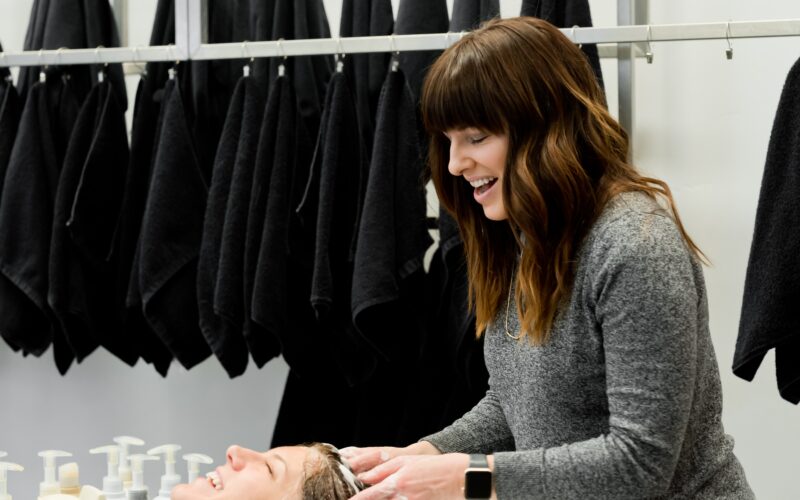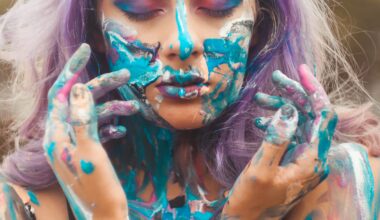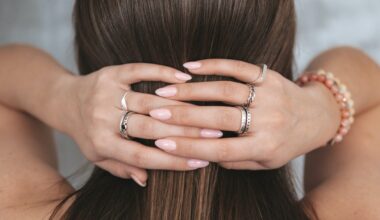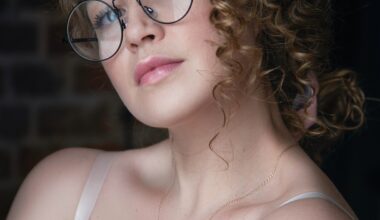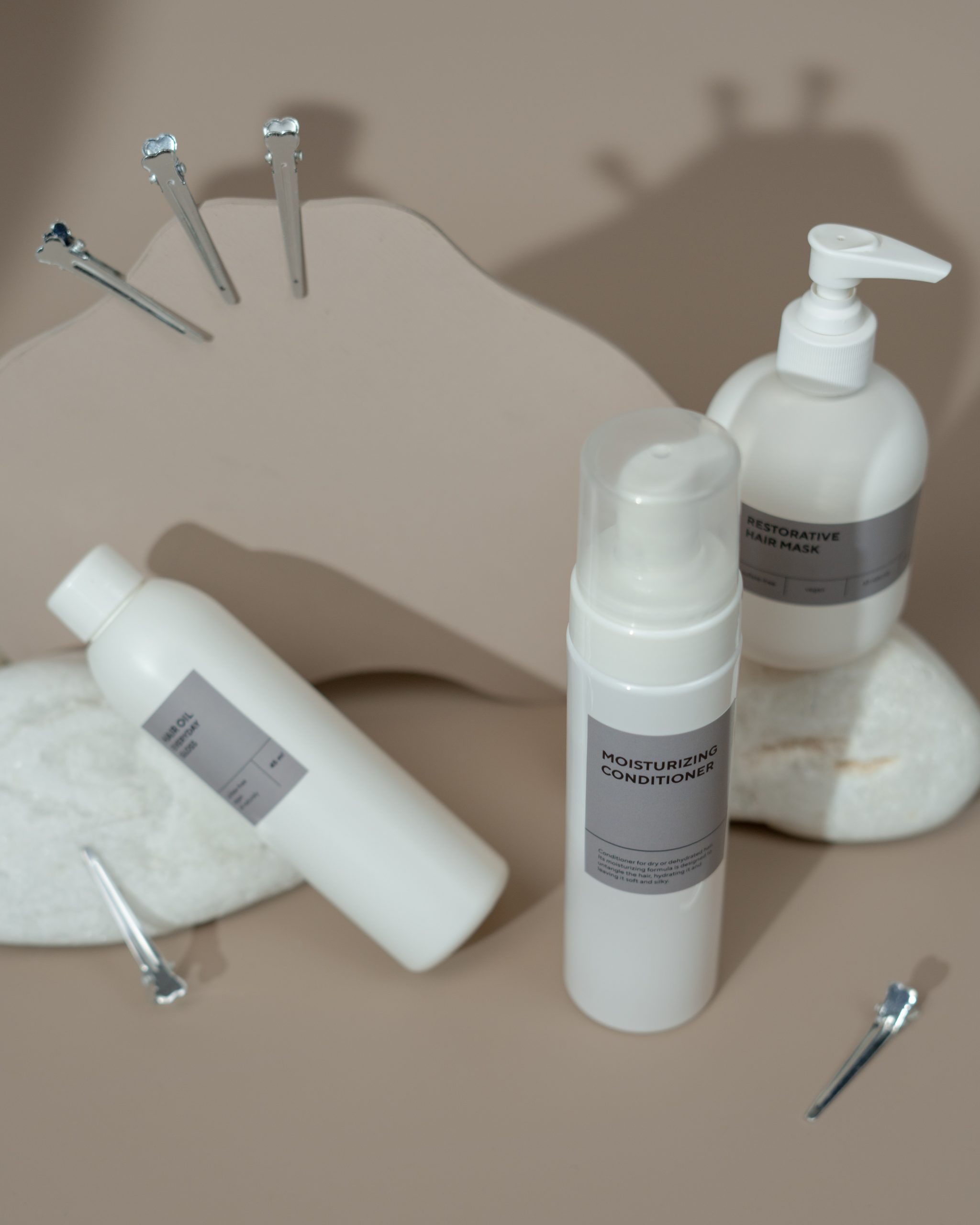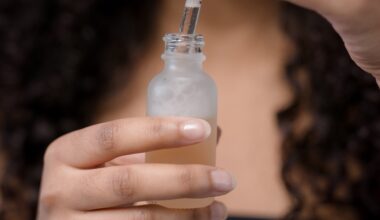Introduction
Beautiful, healthy hair often begins with the magic touch of a humble yet essential product: hair conditioner. In this journey through the world of hair care, we will unravel the science, secrets, and the undeniable success of conditioned hair. But before we dive into the depths of this transformative elixir, let’s start at the beginning.
Key Takeaways
- Hair conditioner plays a vital role in maintaining healthy and beautiful hair.
- Throughout this guide, we’ll explore the science and benefits of using hair conditioner.
How Does Hair Conditioner Work?
Hair conditioners are like magic potions for your hair, but there’s real science behind their enchanting results. Let’s uncover the secrets of how hair conditioners work their wonders.
The Structure of Your Hair
To understand how conditioners work, we need to peek into the structure of your hair. Each hair strand comprises layers. The outermost layer, called the cuticle, is like the protective armor of your hair. When the cuticle lies flat and smooth, your hair appears healthy and shiny. But daily wear and tear, along with environmental factors, can roughen up the cuticle, leading to frizz and dullness.
The Role of Hair Conditioner
This is where hair conditioner steps in. Hair conditioners contain a mix of ingredients, each with a specific role:
- Moisturizers: These ingredients hydrate your hair, preventing dryness and brittleness. They work like a drink of water for your strands.
- Emollients: Emollients in conditioners smooth and soften your hair, making it feel silkier to the touch.
- Occlusives: Occlusive agents form a protective barrier around the hair shaft. They help seal in moisture and keep your hair hydrated.
- Proteins: Some conditioners contain proteins like keratin, which can strengthen and repair damaged hair.
The Magic of pH Balance
Another critical aspect of hair conditioners is their pH level. Hair and scalp have a slightly acidic pH, typically ranging from 4.5 to 5.5. Conditioners are formulated to have a lower pH than shampoos. This acidity helps in two ways:
- It smoothens the hair cuticle, making it lie flat and reflect light, creating a shiny appearance.
- It helps balance the pH of your hair and scalp, reducing frizz and dryness.
The Application Process
Applying conditioner correctly is key to reaping its benefits. After shampooing, squeeze out excess water from your hair. Then, evenly distribute the conditioner from mid-length to the tips, avoiding the scalp. Leave it on for a minute or two to allow the ingredients to work their magic. Rinse thoroughly.
Key Takeaways
- Hair conditioners work by moisturizing, softening, and protecting the hair.
- They help repair damaged hair and maintain a healthy pH balance.
- Proper application is crucial for maximum effectiveness.
Should You Use Hair Conditioner
When it comes to your hair care routine, using conditioner isn’t just an option—it’s a necessity. Here’s why you should embrace this essential step and the remarkable benefits it brings to your tresses.
Enhanced Moisture and Hydration
One of the primary functions of hair conditioner is to replenish moisture in your hair. Daily activities, exposure to the sun, and styling can strip away your hair’s natural oils, leaving it dry and prone to breakage. Conditioners are formulated with ingredients that help restore this lost moisture, leaving your hair hydrated, soft, and manageable.
Detangling and Reduced Breakage
Tangles and knots are a common hair woe, especially if you have long or curly hair. Hair conditioners contain emollients that smooth the hair cuticle and make detangling a breeze. When your hair is less prone to tangling, you’ll experience reduced breakage, allowing your hair to grow longer and stronger.
Improved Shine and Smoothness
Who doesn’t want hair that shines with health? Conditioners play a significant role in enhancing the luster and smoothness of your hair. By sealing the hair cuticle, conditioners make the surface of your hair smoother and more reflective. This results in a glossy appearance that’s the hallmark of well-conditioned locks.
Protection Against Environmental Stressors
Your hair faces daily challenges from environmental stressors like pollution and UV radiation. Conditioners act as a protective shield, preventing these stressors from causing harm. They create a barrier that keeps your hair healthy and shields it from external damage.
Balanced pH Levels
We mentioned earlier that hair and scalp have a slightly acidic pH. Conditioners help maintain this pH balance, reducing frizz and dryness. When your hair’s pH level is in check, it not only looks better but also feels healthier.
Preventing Heat Damage
If you’re a fan of styling tools like hair dryers and straighteners, a heat protectant conditioner is your best friend. It creates a protective barrier that shields your hair from the damaging effects of heat, reducing the risk of dryness and breakage.
Key Takeaways
- Hair conditioner is essential for maintaining healthy, well-hydrated hair.
- It detangles, reduces breakage, enhances shine, and protects against environmental stressors.
- Conditioner helps balance pH levels and prevents heat damage.
With these benefits in mind, it’s clear that hair conditioner is more than just a luxury—it’s a necessity for anyone seeking beautiful, healthy locks.
When and How to Use Hair Conditioner
Hair conditioner can work wonders, but using it correctly is key to reaping its full benefits. Here, we’ll explore the when and how of applying conditioner for luscious, healthy locks.
When to Use Hair Conditioner
- After Shampooing: The most common time to use conditioner is after shampooing. Shampoo cleanses your hair but can also strip away some of its natural oils. Conditioner helps replenish moisture and nutrients, leaving your hair soft and manageable.
- Frequency: How often you condition depends on your hair type and needs. While some people condition every time they shampoo, others with fine hair may choose to condition every other wash. Experiment and find what works best for your hair.
How to Use Hair Conditioner
- Squeeze Out Excess Water: After shampooing, gently squeeze out excess water from your hair. This allows the conditioner to penetrate more effectively.
- Apply Sparingly: Conditioner should be applied mainly to the mid-lengths and ends of your hair. Avoid applying it directly to the scalp, especially if you have an oily scalp.
- Distribute Evenly: Use a wide-toothed comb or your fingers to evenly distribute the conditioner through your hair. This ensures that every strand benefits from the conditioning.
- Leave it In: Allow the conditioner to sit for a minute or two. This gives the ingredients time to work their magic.
- Rinse Thoroughly: Rinse your hair thoroughly with lukewarm water. Make sure no residue is left behind.
Additional Tips
- Deep Conditioning: For a deeper treatment, consider using a deep conditioner or hair mask once a week.
- Cool Rinse: A cool rinse after conditioning can help seal the hair cuticle, leaving your hair smoother and shinier.
- Avoid Overuse: Using too much conditioner can make your hair feel heavy and greasy. Start with a small amount and add more if needed.
- Adjust Based on Your Hair: Your hair’s needs can change with the seasons or due to factors like color treatments. Be flexible with your conditioning routine to address these changes.
Key Takeaways
- Use conditioner after shampooing to replenish moisture and nutrients.
- Apply conditioner mainly to the mid-lengths and ends of your hair.
- Rinse thoroughly and adjust your routine based on your hair’s needs.
With these tips in mind, you’ll master the art of hair conditioning, ensuring your locks are always at their best.
Beyond Hair: Creative Uses for Hair Conditioner
When you think of hair conditioner, you likely envision smooth, shiny locks. But what if we told you that this humble product has a range of unexpected uses beyond hair care? Here, we’ll explore the versatility of hair conditioner.
- Shaving Cream Substitute
Out of shaving cream? No problem. Hair conditioner can serve as an excellent alternative. Its moisturizing properties create a smooth surface for your razor, reducing friction and leaving your skin feeling soft and nourished.
- Makeup Remover
Stubborn makeup doesn’t stand a chance against hair conditioner. A small amount applied to a cotton pad can effectively remove makeup, even waterproof mascara, while hydrating your skin in the process.
- Fabric Softener for Laundry
If you’ve run out of fabric softener, a dollop of hair conditioner in your laundry can work wonders. It softens clothes and leaves them smelling fresh. Be cautious with this if you have sensitive skin, as some conditioners may contain fragrances that could irritate.
- Cuticle Cream
Pamper your nails by using hair conditioner as a cuticle cream. Apply a small amount to your cuticles and massage it in to soften and moisturize them, keeping your nails and hands looking their best.
- Shoe Polish Alternative
In a pinch, hair conditioner can be used to polish and shine your shoes. Apply a small amount, buff with a cloth, and watch your shoes regain their luster.
- Leather Conditioner
Leather items like bags or belts can benefit from a conditioning treatment. A dab of hair conditioner can help keep your leather goods supple and hydrated.
- Lubricant for Sticky Zippers
Got a zipper that refuses to budge? A little hair conditioner on the zipper teeth can act as a lubricant, making it easier to zip up clothing or bags.
- Chrome and Stainless Steel Polish
Hair conditioner can also double as a polish for chrome and stainless steel surfaces. Apply a small amount, buff it in, and wipe away to reveal a shiny finish.
- Door Hinge Quieter
Squeaky door hinges driving you crazy? A bit of hair conditioner can silence the squeak and keep the door swinging smoothly.
- Car Interior Cleaner
For a quick clean and shine of your car’s interior surfaces, including dashboard and vinyl, hair conditioner can come in handy. Just be sure to wipe off any excess to prevent a slippery surface.
Key Takeaways
- Hair conditioner has numerous alternative uses beyond hair care.
- It can serve as a substitute for shaving cream, makeup remover, fabric softener, and more.
- Be cautious when using conditioner for non-hair-related purposes, especially if you have sensitive skin.
With these inventive applications, you can make the most of your hair conditioner, transforming it into a versatile ally in your daily life.
Making Your Own Hair Conditioner: DIY Recipes
Why not treat your tresses to something special with homemade hair conditioner? Here are some simple yet effective DIY recipes that let you pamper your hair without leaving home.
Nourishing Coconut Milk Conditioner
Ingredients:
- 1/2 cup coconut milk
- 1 tablespoon honey
- 1 tablespoon olive oil
Instructions:
- Mix the coconut milk, honey, and olive oil in a bowl until well combined.
- Apply the mixture to your hair, starting at the roots and working your way to the ends.
- Leave it on for 15-20 minutes.
- Rinse thoroughly with cool water.
Benefits: This conditioner is perfect for dry or damaged hair, as it provides deep hydration and nourishment.
Avocado and Banana Hair Mask
Ingredients:
- 1 ripe avocado
- 1 ripe banana
- 2 tablespoons plain yogurt
Instructions:
- Mash the avocado and banana in a bowl until you have a smooth paste.
- Add the yogurt and mix well.
- Apply the mask to your hair, focusing on the ends.
- Leave it on for 30 minutes.
- Rinse thoroughly with cool water.
Benefits: Avocado and banana are rich in vitamins and natural oils, making this mask perfect for restoring shine and vitality to your hair.
Olive Oil and Aloe Vera Conditioner
Ingredients:
- 2 tablespoons olive oil
- 2 tablespoons aloe vera gel
- A few drops of your favorite essential oil (optional)
Instructions:
- Mix the olive oil, aloe vera gel, and essential oil (if using) in a bowl.
- Apply the mixture to your hair, focusing on the tips.
- Leave it on for 20-30 minutes.
- Rinse thoroughly with cool water.
Benefits: This conditioner is excellent for soothing a dry or itchy scalp while adding shine and softness to your hair.
Honey and Egg Hair Mask
Ingredients:
- 1 egg
- 2 tablespoons honey
- 2 tablespoons olive oil
Instructions:
- Beat the egg in a bowl.
- Add the honey and olive oil and mix well.
- Apply the mask to your hair, from root to tip.
- Leave it on for 20-30 minutes.
- Rinse thoroughly with cool water.
Benefits: This mask is packed with protein and moisture, making it ideal for strengthening and revitalizing your hair.
Key Takeaways
- DIY hair conditioners can be made using simple, natural ingredients.
- These recipes cater to various hair types and concerns.
- Always rinse thoroughly to prevent residue buildup.
With these DIY recipes, your readers can enjoy the luxury of a personalized hair conditioner, tailored to their hair’s unique needs.
Are All Hair Conditioners the Same?
When you stroll down the hair care aisle at your local store, you’ll notice a wide array of hair conditioners. From the classics to specialized treatments, let’s explore what makes these products different.
Traditional Conditioners
These are the everyday heroes of hair care. Traditional conditioners come in various formulations, such as moisturizing, volumizing, or smoothing. They typically contain a combination of ingredients like:
- Emollients: These smooth the hair’s surface, making it feel soft and silky.
- Humectants: They attract and retain moisture in the hair.
- Proteins: Some conditioners include proteins like keratin to strengthen the hair.
Traditional conditioners are versatile and cater to various hair types and concerns.
Deep Conditioners and Hair Masks
If your hair needs some extra love and care, deep conditioners and hair masks are the way to go. These treatments are designed to penetrate the hair shaft deeply. They often contain:
- Intensive Moisturizers: Deep conditioners provide an extra dose of moisture for parched hair.
- Natural Oils: Ingredients like argan oil or coconut oil can be found in these products for added nourishment.
- Repairing Ingredients: They may include ingredients like hydrolyzed proteins to repair damaged hair.
Deep conditioners and masks are especially beneficial for damaged, dry, or frizzy hair.
Leave-In Conditioners
Leave-in conditioners are applied to damp hair and are not rinsed out. They are lightweight and provide ongoing moisture and protection. Key ingredients in leave-in conditioners include:
- Silicones: These create a protective barrier, reducing frizz and promoting shine.
- UV Filters: Some leave-in conditioners offer UV protection for your hair.
- Detangling Agents: They make combing or brushing easier.
Leave-in conditioners are ideal for those who need extra moisture and detangling assistance.
Color-Protecting Conditioners
For those with colored or treated hair, color-protecting conditioners are essential. They typically contain:
- Color-Enhancing Ingredients: These help lock in and prolong the vibrancy of your hair color.
- UV Filters: To shield your hair from the sun’s harmful rays.
- Moisturizers: To maintain the health of color-treated hair.
Using a conditioner tailored to your hair color can keep it looking fresh and vibrant.
Scalp-Specific Conditioners
If you have specific scalp concerns like dandruff or itchiness, scalp-specific conditioners are designed to address these issues. They may contain:
- Anti-Dandruff Agents: To combat flakes and soothe the scalp.
- Tea Tree Oil: Known for its antimicrobial properties, it can help with scalp issues.
- Aloe Vera: For its calming and moisturizing effects.
These conditioners focus on the health of your scalp, which is crucial for healthy hair growth.
Key Takeaways
- Hair conditioners come in various types, including traditional, deep, leave-in, color-protecting, and scalp-specific.
- The choice of conditioner depends on your hair type and specific needs.
- Reading product labels can help you select the right conditioner for your hair.
By understanding the differences between these conditioner types, your readers can make informed choices to meet their hair care needs.
Hair Conditioner vs. Body Lotion: Can You Use It as a Moisturizer?
You might have found yourself in a pinch, realizing you’re out of body lotion but have a fresh bottle of hair conditioner nearby. Can you use hair conditioner as a moisturizer for your skin? Let’s explore this unconventional but intriguing idea.
Using Hair Conditioner as a Body Lotion: Is It Safe?
Hair conditioner and body lotion serve similar purposes: they both aim to hydrate and soften. However, they are formulated differently, and there are some considerations to keep in mind:
- Ingredients
- Hair Conditioner: Hair conditioners often contain ingredients like silicones, which can create a barrier on the skin. While this is excellent for locking in moisture on hair strands, it may not be ideal for the skin.
- Body Lotion: Body lotions are formulated with the skin’s needs in mind. They typically contain ingredients that are gentle, non-comedogenic (won’t clog pores), and suitable for skin use.
- Sensitivity
- Hair Conditioner: Some hair conditioners may contain fragrances or ingredients that could irritate sensitive skin, especially on the face.
- Body Lotion: Body lotions are usually designed to be gentle on the skin, making them a safer choice for most individuals.
- Absorption
- Hair Conditioner: Hair conditioners are engineered to adhere to hair and are meant to be rinsed out. Their thicker consistency may not absorb as effectively into the skin.
- Body Lotion: Body lotions are designed for quick absorption and even distribution across the skin.
- Scent
- Hair Conditioner: The fragrance in hair conditioners is often tailored for the hair, and the scent may not be as pleasant or long-lasting when applied to the skin.
- Body Lotion: Body lotions usually feature fragrances that are designed to be appealing when applied to the skin.
When You Can Use Hair Conditioner as a Body Lotion
While it’s generally recommended to use products as intended, there are situations where using hair conditioner as a body lotion may work:
- In emergencies when you have no body lotion available.
- If you’ve carefully examined the ingredients of your hair conditioner and it contains no skin-irritating or pore-clogging substances.
- On areas of your body that are not sensitive, like your legs or arms.
A Word of Caution
Avoid using hair conditioner as a facial moisturizer, as the skin on your face is typically more sensitive and prone to breakouts.
Key Takeaways
- Hair conditioner and body lotion have different formulations.
- Using hair conditioner as a body lotion may be suitable in emergencies, but caution is advised.
- For long-term skin care, it’s best to use products specifically designed for the skin.
While it’s possible to use hair conditioner as a body lotion in a pinch, it’s not a long-term substitute. Using products designed for their intended purposes is the safest and most effective approach to skincare.
Hair Conditioners Without Alcohol: Options for Sensitive Scalps
For individuals with sensitive scalps, selecting the right hair conditioner is crucial. Many hair care products contain alcohol, which can be drying and irritating, especially for those prone to scalp sensitivity. In this section, we’ll explore the advantages of alcohol-free hair conditioners and suggest some options to consider.
The Impact of Alcohol on Sensitive Scalps
Alcohol, often listed as ethanol or isopropyl alcohol on ingredient labels, is included in hair care products for several reasons, including its ability to help with quick drying and product penetration. However, alcohol can have adverse effects on sensitive scalps, including:
- Dryness: Alcohol can strip the scalp of its natural oils, leading to dryness and flakiness.
- Irritation: It may cause itching, burning, or redness, exacerbating scalp sensitivity.
- Increased Sensitivity: Regular use of alcohol-containing products can make the scalp more susceptible to irritation over time.
Benefits of Alcohol-Free Hair Conditioners
Alcohol-free hair conditioners offer a gentler approach to scalp care. Here’s why they’re an excellent choice for those with sensitive scalps:
- Hydration: Alcohol-free conditioners focus on moisturizing and nourishing the hair and scalp without causing dryness.
- Reduced Irritation: These conditioners are less likely to irritate sensitive scalps, making them a more comfortable choice.
- Improved Scalp Health: By avoiding the drying effects of alcohol, these conditioners promote a healthier scalp environment.
Options for Alcohol-Free Hair Conditioners
When shopping for alcohol-free hair conditioners, look for products labeled as such. Additionally, scan the ingredient list to confirm the absence of alcohol-related compounds. Here are a few options to consider:
- SheaMoisture Raw Shea Butter Restorative Conditioner: This conditioner is formulated with natural ingredients and shea butter, providing deep hydration without the use of alcohol.
- Aveeno Scalp Soothing Oat Milk Blend Conditioner: Aveeno’s alcohol-free conditioner features soothing oat milk to calm sensitive scalps and nourish hair.
- Burt’s Bees Super Shiny Mango Conditioner: For those looking for a natural and alcohol-free option, Burt’s Bees offers this conditioner, enriched with mango seed butter.
- HASK Argan Oil Repairing Conditioner: This alcohol-free conditioner contains argan oil to help restore and strengthen hair while being gentle on the scalp.
Key Takeaways
- Alcohol in hair conditioners can be problematic for sensitive scalps.
- Alcohol-free hair conditioners provide hydration and reduce irritation.
- Look for products specifically labeled as alcohol-free or scan ingredient lists for alcohol-related compounds.
By choosing alcohol-free hair conditioners, individuals with sensitive scalps can enjoy the benefits of conditioned and moisturized hair without the risk of irritation or dryness.
Hair Conditioners from The Body Shop: A Review
The Body Shop is well-known for its commitment to natural and ethical beauty products. Their hair conditioners are no exception. Here, we’ll take a closer look at some of The Body Shop’s popular hair conditioner offerings, highlighting their key ingredients and potential benefits.
- Rainforest Moisture Conditioner
Key Ingredients: This conditioner is enriched with pracaxi oil and manketti nut oil.
Benefits: The Rainforest Moisture Conditioner is designed to provide hydration to dry and damaged hair. It’s free from silicones, parabens, and colorants, making it a great choice for those who prefer natural hair care products.
- Banana Truly Nourishing Conditioner
Key Ingredients: This conditioner features Community Fair Trade banana puree from Ecuador.
Benefits: If you’re looking for a conditioner that adds shine and moisture to your hair, the Banana Truly Nourishing Conditioner might be your go-to. It’s formulated to leave hair feeling soft and looking healthier.
- Fuji Green Tea™ Refreshingly Hydrating Conditioner
Key Ingredients: This conditioner contains Japanese green tea extract.
Benefits: The Fuji Green Tea™ Refreshingly Hydrating Conditioner is designed to revitalize and refresh your hair. It’s ideal for those who want to combat dullness and leave their hair feeling renewed.
- Strawberry Clearly Glossing Conditioner
Key Ingredients: Infused with cold-pressed strawberry seed oil.
Benefits: The Strawberry Clearly Glossing Conditioner aims to leave your hair looking shiny and feeling lightweight. It’s a great choice if you want to enhance the natural gloss of your hair.
- Shea Butter Richly Replenishing Conditioner
Key Ingredients: Contains Community Fair Trade shea butter from Ghana.
Benefits: Shea Butter is known for its moisturizing properties. This conditioner is formulated to intensely nourish dry hair and leave it feeling soft and smooth.
- Ginger Anti-Dandruff Conditioner
Key Ingredients: Infused with ginger essential oil from Sri Lanka.
Benefits: For those dealing with dandruff concerns, the Ginger Anti-Dandruff Conditioner is formulated to help soothe the scalp and reduce flakiness while providing hydration.
- Coconut Nourishing Conditioner
Key Ingredients: Features Community Fair Trade organic virgin coconut oil from Samoa.
Benefits: Coconut oil is a well-known hair care ingredient. This conditioner is designed to deeply nourish and moisturize hair, leaving it feeling conditioned and manageable.
Key Takeaways
- The Body Shop offers a range of hair conditioners with natural and ethically sourced ingredients.
- Each conditioner caters to specific hair concerns, from hydration to shine to dandruff control.
- Consider your hair type and specific needs when selecting a product.
The Body Shop’s commitment to natural ingredients and ethical sourcing makes their hair conditioners a popular choice for those who prioritize environmentally friendly and effective hair care.
Hair Conditioners and Dandruff: Tips for Dandruff-prone Scalps
Dandruff, characterized by flaky and sometimes itchy scalp, can be a persistent concern. Choosing the appropriate hair conditioner is crucial for those dealing with this issue. Here are some tips for individuals with dandruff-prone scalps:
Look for Anti-Dandruff Formulations
Many hair care brands offer conditioners specifically formulated to address dandruff. These conditioners often contain active ingredients like:
- Pyrithione Zinc: Known for its anti-fungal properties, it helps combat the fungus associated with dandruff.
- Salicylic Acid: It helps exfoliate the scalp, reducing flakiness.
- Coal Tar: Effective at slowing down the growth of skin cells on the scalp.
Pair with a Matching Shampoo
For the best results in managing dandruff, consider using an anti-dandruff shampoo in conjunction with a conditioner from the same product line. This ensures a consistent approach to dandruff control.
Be Mindful of Your Scalp Type
Different dandruff conditions may require different approaches. If you have a dry scalp with dandruff, look for a moisturizing anti-dandruff conditioner. For an oily scalp with dandruff, opt for a conditioner that balances oil production.
Avoid Heavy or Oily Conditioners
While moisture is essential for the hair, heavy or overly oily conditioners may exacerbate dandruff issues. Look for lightweight, non-greasy formulations that nourish without weighing down the hair.
Use Conditioner Sparingly on the Scalp
When applying conditioner, focus on the hair lengths and ends rather than the scalp. Applying too much conditioner directly to the scalp can potentially worsen dandruff.
Rinse Thoroughly
Ensure that you rinse the conditioner out thoroughly to prevent any residue from building up on the scalp, which can contribute to dandruff.
Consider Natural Ingredients
Some natural ingredients like tea tree oil and aloe vera have anti-dandruff properties. You can explore conditioners that incorporate these ingredients for a more natural approach to dandruff control.
Be Consistent
Consistency is key in managing dandruff. Regularly using an anti-dandruff conditioner as part of your hair care routine can help keep dandruff under control.
Key Takeaways
- Choose an anti-dandruff conditioner with active ingredients that address your specific dandruff condition.
- Pair your conditioner with a matching anti-dandruff shampoo for a comprehensive approach.
- Be mindful of your scalp type (dry, oily) when selecting a conditioner.
- Use conditioner sparingly on the scalp, focusing on the hair lengths and ends.
By following these tips and selecting the right hair conditioner tailored to dandruff-prone scalps, individuals can effectively manage dandruff and enjoy healthier, flake-free hair.
Conclusion
In this comprehensive guide, we’ve explored the multifaceted world of hair conditioners, from their traditional role in hair care routines to their surprising alternative uses. Let’s recap the key takeaways:
- Hair Conditioners and Their Roles: Hair conditioners are essential for maintaining hair health, providing hydration, softness, and manageability.
- Unconventional Uses: Hair conditioners can serve various purposes beyond hair care, from moisturizing the skin to crafting DIY recipes.
- Choosing the Right Conditioner: Selecting the appropriate conditioner depends on your hair type, concerns, and specific needs.
- Natural Alternatives: Natural ingredients like tea tree oil and aloe vera offer alternatives for those seeking a more holistic approach to hair care.
- Brand Spotlight – The Body Shop: The Body Shop offers a range of nature-inspired hair conditioners with a focus on natural ingredients and ethical sourcing.
- Managing Dandruff: Individuals dealing with dandruff can benefit from anti-dandruff conditioners and a consistent hair care routine.
As you navigate your hair care journey, remember to consider your unique needs and preferences. Whether you’re looking to enhance your hair’s shine, explore DIY recipes, or manage dandruff, there’s a conditioner and approach that’s right for you.
Continue to explore, experiment, and find the perfect conditioner that leaves your hair looking and feeling its best. Your hair is a canvas, and with the right conditioner, you can paint it with vibrant health and beauty.
Thank you for joining us on this journey through the world of hair conditioners. We hope you’ve gained valuable insights and inspiration for your hair care routine. Remember that healthy, beautiful hair begins with the right conditioner, tailored to your unique needs.
